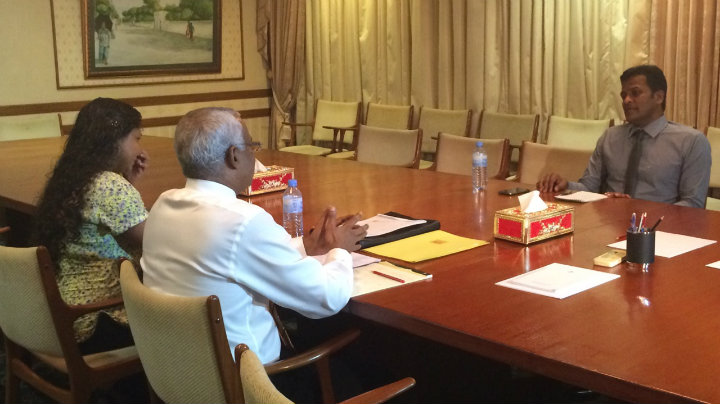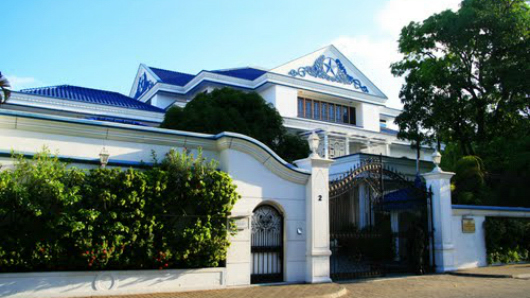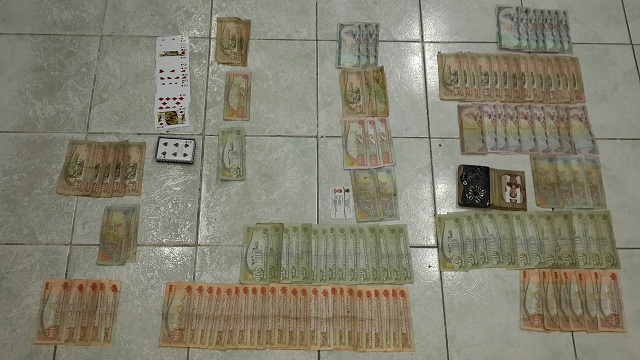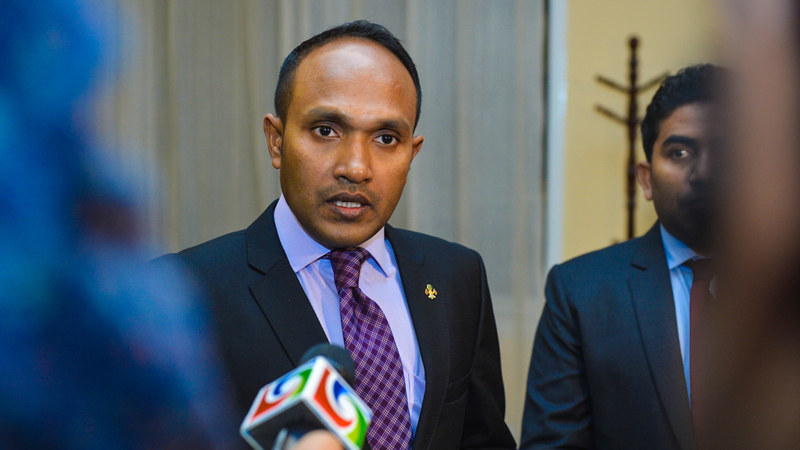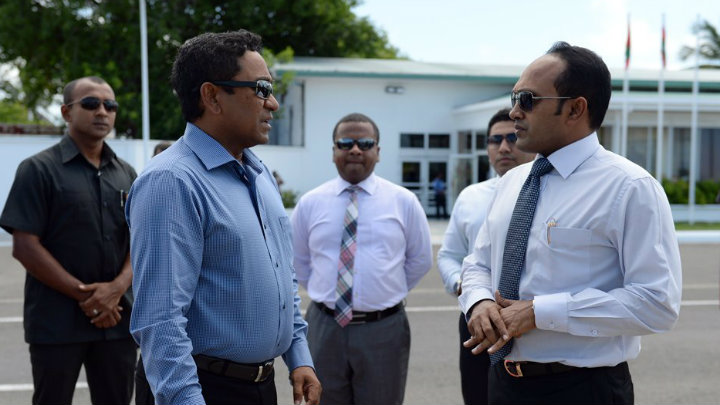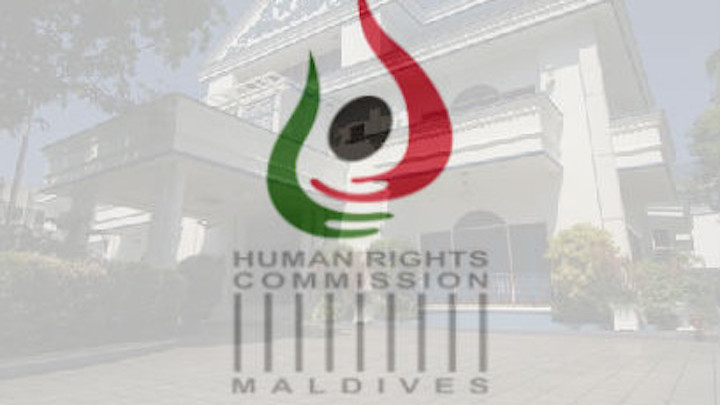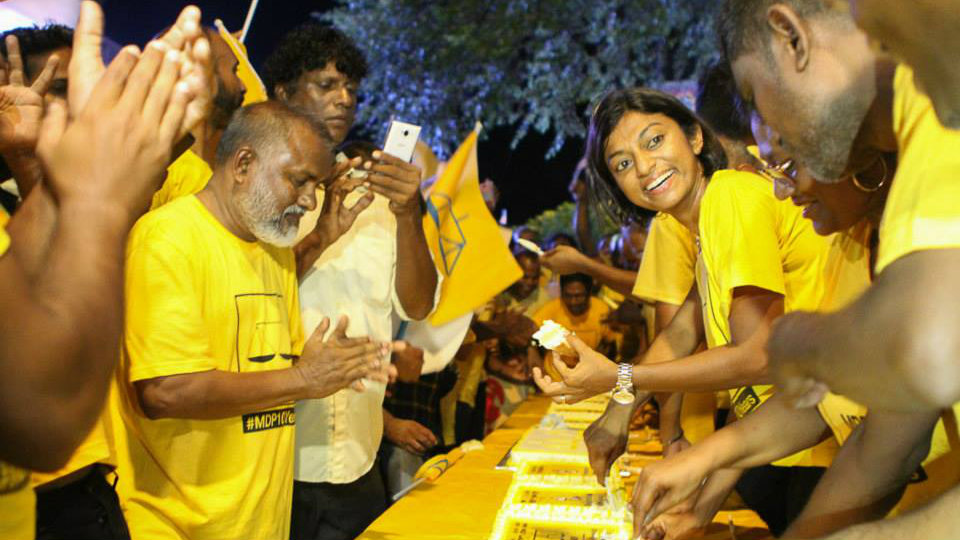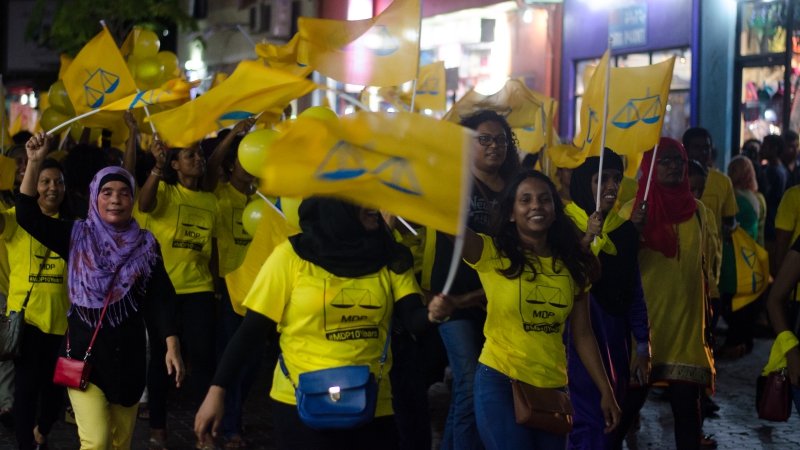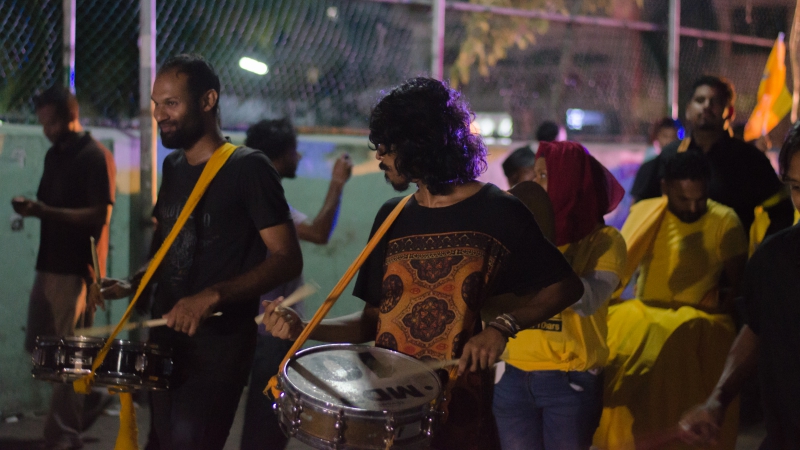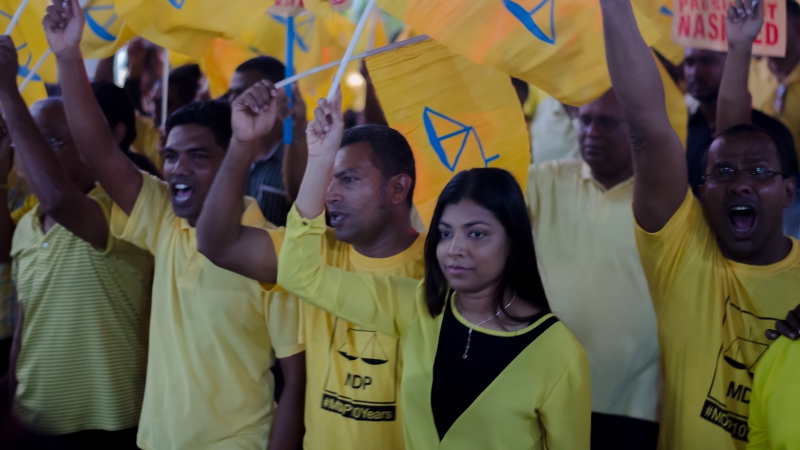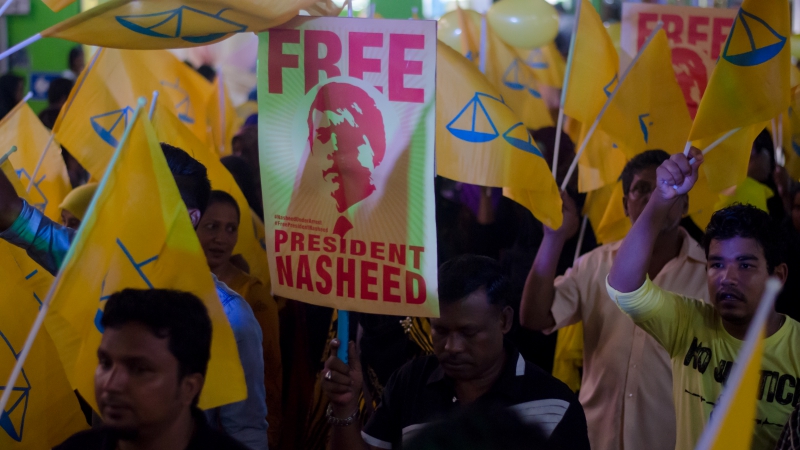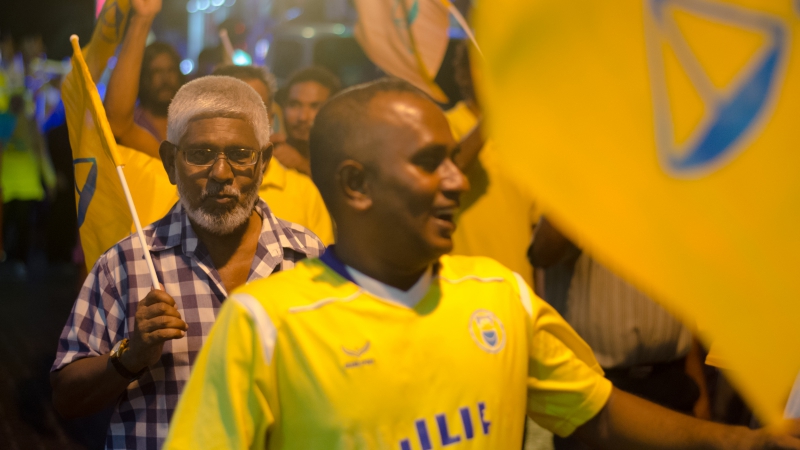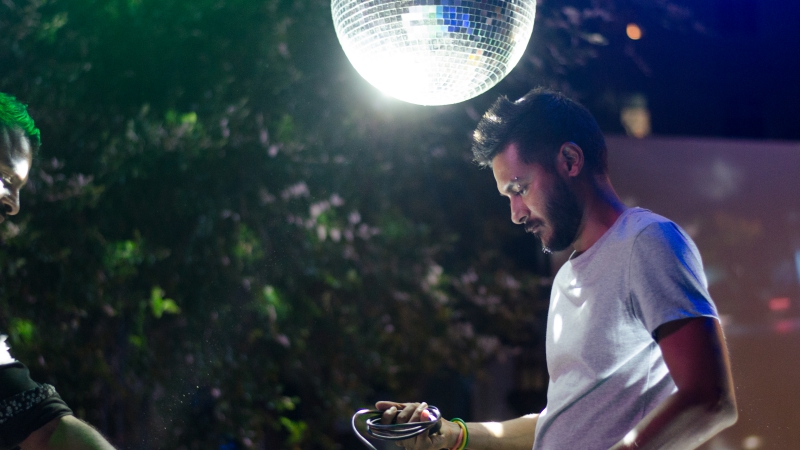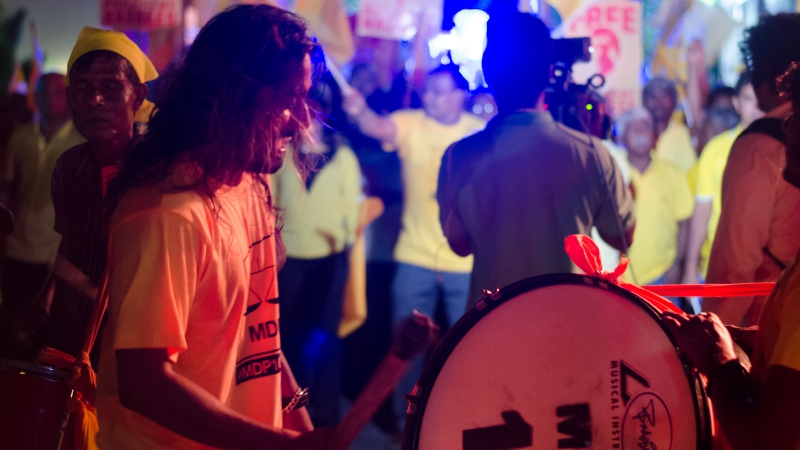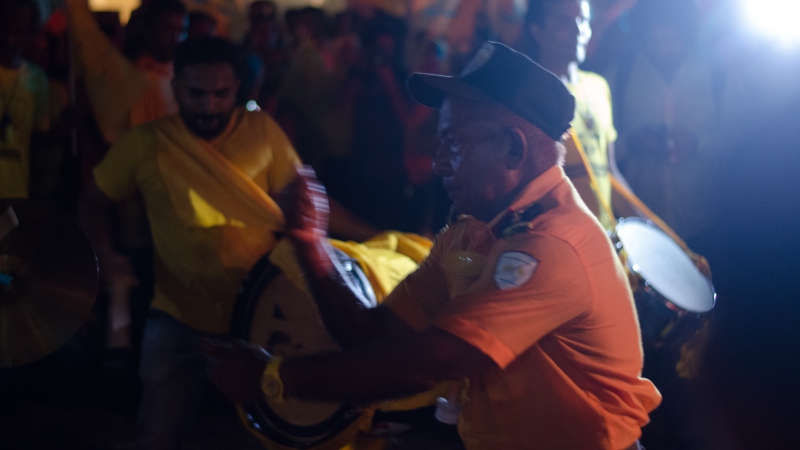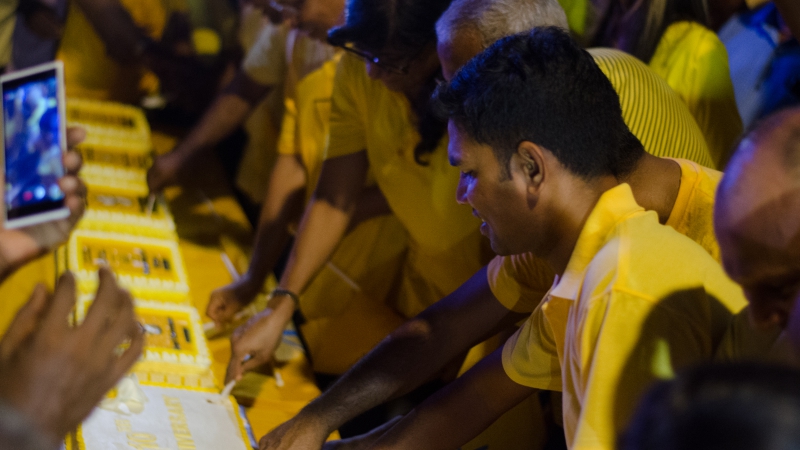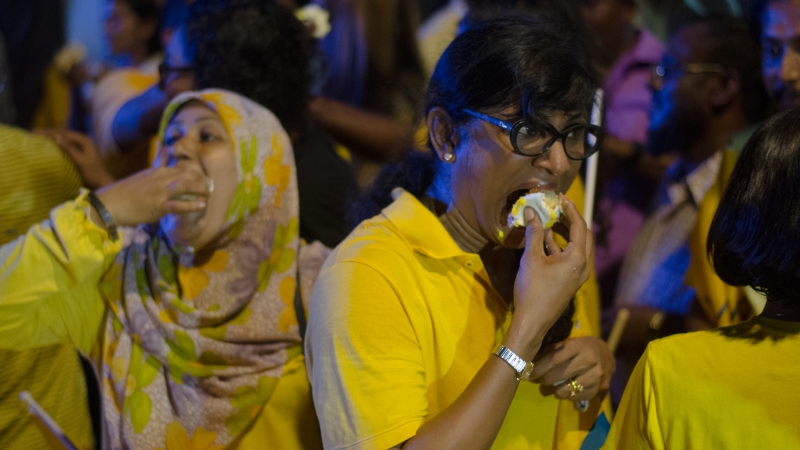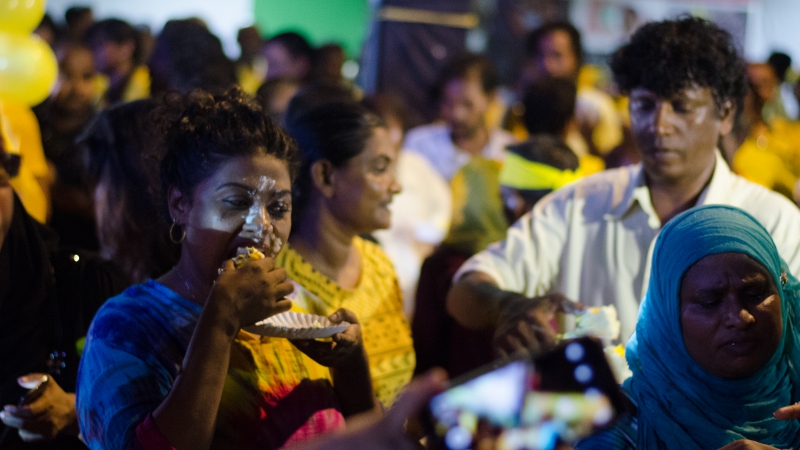Representatives of the government and the main opposition Maldivian Democratic Party (MDP) made an unprecedented show of commitment to resolving a six-month long political crisis tonight following a preliminary meeting ahead of talks.
“I believe this is the time for a major reconciliation by finding a consensus through talks. The government, to show its sincerity, will make all the concessions we can,” Home minister Umar Naseer told the press.
Naseer and the MDP’s parliamentary group leader Ibrahim ‘Ibu’ Mohamed Solih met at the President’s Office at 11:00pm on Wednesday night, and discussed the agenda and structure for the long-awaited negotiations.
“We believe the government is ready to come to a resolution. That is why we are sitting down. I have high hope that we will find a solution,” Ibu said.
The Maldives has been gripped by political turmoil since the arrest and imprisonment of ex-president Mohamed Nasheed and ex-defence minister Mohamed Nazim.
Hundreds were arrested in protests and key figures were charged with terrorism. Diplomatic pressure has been mounting on President Abdulla Yameen’s government to release all political prisoners, including Nasheed.
“We have not spoken on the substance of the talks tonight, meaning on what it is that we will agree on, or what we cannot agree on. We spoke on the design of the talks, and how we will proceed,” Naseer said.
A second meeting will be held on Sunday (July 5) at 10:30pm.
“We noted even tonight that there is common ground. Our two parties are very mature. Both have ruled, and both have been in opposition. Both parties have experienced all there is to experience in the political sphere,” Naseer said.
“This might take some time, but both parties we are starting off with sincerity, with the hope of success.”
The two parties, in their role as opposition, had made mistakes, Naseer said. “In light of those experiences, with the awareness that either of us may be in power, or in opposition in the future, we believe this is the beginning of a very important process to shape the Maldives’ political future.”
Nasheed was transferred to house arrest for eight weeks in June, after the opposition backed a constitutional amendment to allow President Yameen to replace his vice president.
Agenda
The government’s agenda, proposed in mid-May, includes three aspects – political reconciliation, constitutional and judicial reform, and political party participation in development.
MDP has requested tonight that the government agree on five basic rules and a timeline for the talks. The proposed rules include:
- Agreement to talks between all parties, including ruling Progressive Party of the Maldives (PPM), the MDP, the Jumhooree Party and the Adhaalath Party.
- Each party must be able to determine their representatives
- Talks should proceed in three stages
- Agreement on a measure to determine success
The MDP also presented Naseer with papers on the government’s agenda points.
The party has requested that the government, in order to establish an environment conducive for talks and to reach political reconciliation, agree to the following:
- To make concessions on “politically motivated sentencing” of politicians, including Nasheed, Nazim, ex-defence minister Tholhath Ibrahim and MP Ahmed Nazim
- Withdraw “politically motivated charges” against some 400 protestors
- Withdraw economic sanctions against businessmen, namely JP leader Gasim Ibrahim
- Job security for councilors, civil servants and employees of state owned companies
- Independent inquiry into the murder of MP Afrasheem Ali and the disappearance of Minivan News journalist Ahmed Rilwan
- Independent investigation of the death threats sent via text messages to politicians and journalists
After an agreement is reached on political reconciliation, the MDP has proposed that the parties begin discussions on judicial and constitutional reform and development.
The MDP has also proposed a constitutional change to a parliamentary system of government
“Our party has governed within a presidential system, and so has the ruling party. Every time, it is the candidate who wins the second largest number of votes who comes to power, through a coalition. But the coalition falls apart soon afterwards and the government is plunged into turmoil. We have experienced this system and we have not seen good results, so lets change to a parliamentary system,” Ibu said.
The paper on political party participation in development includes some 40 proposals, Ibu said.
President Yameen had first proposed talks on May 14. But there was no progress after the government ruled out negotiations over Nasheed and Nazim’s release and vetoed Nasheed as an MDP representative.
When the opposition leader was transferred to house arrest, the MDP said it will continue with talks without Nasheed.
The government tonight appeared to relent on its veto on Nasheed with Naseer saying: “We have not directly decided who will represent the MDP in talks. MDP will decide that.”
Assuring the public of the government’s commitment to a resolution, Naseer said they stand ready to make any concessions necessary by amending laws.
“We have compromised even when it was really hard for us. We will do so in the future. The MDP represents a large portion of the Maldivian public and is among the largest political parties. It will be much easier for this government to achieve the development, progress that we seek with them, in light of discussions with them,” he said.
